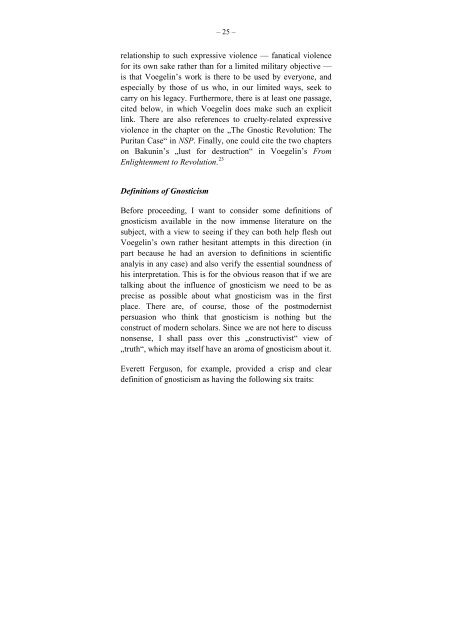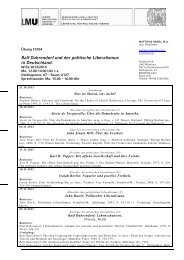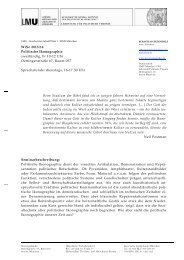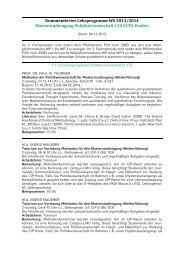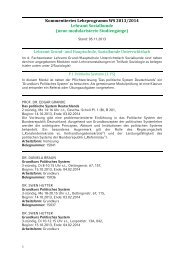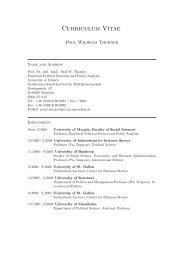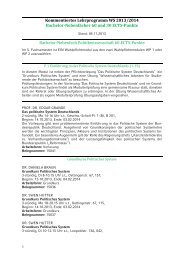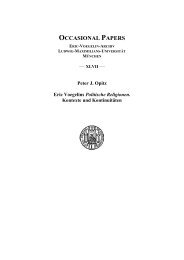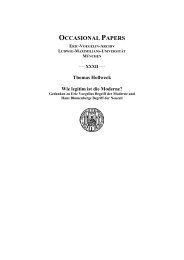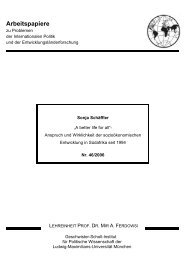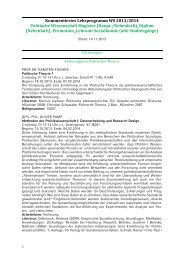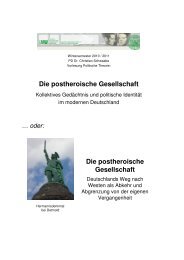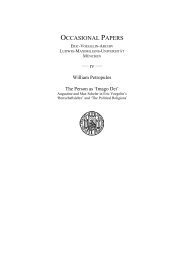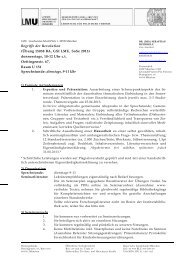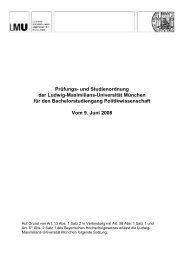Eric Voegelin.pdf - Geschwister-Scholl-Institut für Politikwissenschaft
Eric Voegelin.pdf - Geschwister-Scholl-Institut für Politikwissenschaft
Eric Voegelin.pdf - Geschwister-Scholl-Institut für Politikwissenschaft
Create successful ePaper yourself
Turn your PDF publications into a flip-book with our unique Google optimized e-Paper software.
– 25 –<br />
relationship to such expressive violence — fanatical violence<br />
for its own sake rather than for a limited military objective —<br />
is that <strong>Voegelin</strong>’s work is there to be used by everyone, and<br />
especially by those of us who, in our limited ways, seek to<br />
carry on his legacy. Furthermore, there is at least one passage,<br />
cited below, in which <strong>Voegelin</strong> does make such an explicit<br />
link. There are also references to cruelty-related expressive<br />
violence in the chapter on the „The Gnostic Revolution: The<br />
Puritan Case“ in NSP. Finally, one could cite the two chapters<br />
on Bakunin’s „lust for destruction“ in <strong>Voegelin</strong>’s From<br />
Enlightenment to Revolution. 23<br />
Definitions of Gnosticism<br />
Before proceeding, I want to consider some definitions of<br />
gnosticism available in the now immense literature on the<br />
subject, with a view to seeing if they can both help flesh out<br />
<strong>Voegelin</strong>’s own rather hesitant attempts in this direction (in<br />
part because he had an aversion to definitions in scientific<br />
analyis in any case) and also verify the essential soundness of<br />
his interpretation. This is for the obvious reason that if we are<br />
talking about the influence of gnosticism we need to be as<br />
precise as possible about what gnosticism was in the first<br />
place. There are, of course, those of the postmodernist<br />
persuasion who think that gnosticism is nothing but the<br />
construct of modern scholars. Since we are not here to discuss<br />
nonsense, I shall pass over this „constructivist“ view of<br />
„truth“, which may itself have an aroma of gnosticism about it.<br />
Everett Ferguson, for example, provided a crisp and clear<br />
definition of gnosticism as having the following six traits:


